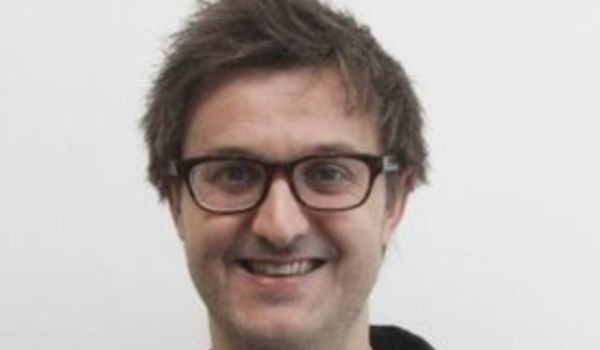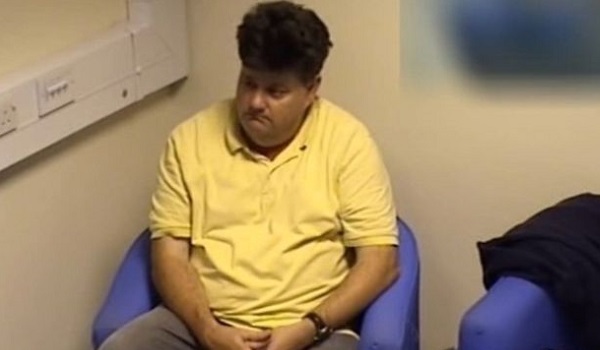New script to strip away ‘glamour story’ of gangland crime
Policing and the Scottish government are looking at formalising ways to “change the narrative” in diverting vulnerable people from being drawn into organised crime.
Senior officers and politicians are in discussion over enlisting the help of fiction writers to strip away the “glamour story” of serious crime and replace its image on TV screen and page with grim reality.
Next week law enforcement and Holyrood are planning a ‘closed’ conference to examine recent research that exposed the “deep rooted and enduring forms of harm and exploitation at community level” done by organised crime.
Highlighting the issue is a new short film called ‘The Slide’, about a young footballer getting caught in organised crime. It has been developed by Police Scotland and was launched this week at Broughton High School.
A proposal, published by the Scottish government’s Serious and Organised Crime Task Force, suggests current ad-hoc arrangements for briefing fiction writers could be made more permanent on a similar line to the FBI.
The US agency holds more general seminars with established writers, to provide briefings on the nature and variety of their work and to answer technical questions related to different crime types they are tackling.
Consideration of opening such channels may be an important step towards informing the public of the evolving nature of organised crime, the government suggests.
A Scottish government spokesperson told Police Professional: “It is essential that people understand the reality of serious organised crime – that beneath any superficial glamour, it preys on the vulnerable, it destroys lives and it damages communities.
“The clearer all of us are about the harm that it causes, the more we can work together to deter, disrupt and detect organised crime groups and divert people away from getting drawn into organised crime or unwittingly supporting it by buying illicit goods.”
Alistair Fraser, of Glasgow University, recently completed a major report Community Experiences of Serious Organised Crime in Scotland for the taskforce on how gang culture blights real communities.
The study sought to identify: the relationships that exist between SOC and communities in Scotland; the experiences and perceptions of residents, stakeholders and organisations of the scope and nature of SOC within their local area; how, and to what extent SOC impacts on community wellbeing; and to what extent the harms associated with SOC can be mitigated.
Mr Fraser said: “Ask any criminologist what their favourite TV show is and they will all answer the same: ‘The Wire’,” he said. “Not just for depictions of criminal groups and street culture but also policing, the courts, media etc. It is sociological through and through.
“The Wire’s an example of what can be done when great journalism and ambitious TV production comes together with a decent budget and support, and shows the inner-life of the city in a way that no other medium can.”
The research, from earlier this month, showed the realities of organised crime in Scotland are a long way from the “realm of fiction and fantasy” of popular TV culture.
“Organised crime doesn’t exist as a secretive subculture, hidden from view, but is stitched into the fabric of our communities,” said Mr Fraser.
“Criminal gangs rely on local areas to support their activities, leaning on vulnerable individuals, offering ‘help’ to people struggling with debt, selling a dream to unemployed youth.
“And it is at times a mutually beneficial relationship – a source of cheap goods and a way of resolving dispute. Viewed up close these relationships are easy to understand.
“Taking a wider view reveals a different picture. These small moments take place in a bigger context of enduring community disadvantage.
“Organised crime has become entwined with community life where work has disappeared, and debt and addiction have emerged in its place. The vulnerabilities caused by entrenched poverty are the lifeblood of organised crime . . . a map of communities most impacted by organised crime closely mirroring one of economic disadvantage.”
It is a mistake to think organised crime is a problem only for disadvantaged inner-city areas as the study uncovered the reach stretched to towns, villages and rural areas, as well as to precarious migrant communities.
The report suggests the need to change the conversation about organised crime in Scotland.
“Rather than seeing it as an issue just for police, it should be seen as a challenge for society as a whole,” added Mr Fraser.
“The current police strategy – Divert, Deter, Detect, Disrupt – is wide-ranging but could go further. We recommend a fifth ‘D’, Develop, which aims to support community development as the best and most effective response to criminal exploitation.
“We argue that approaches to organised crime need to step out of the shadows and into the light.”
Responding to these “deeply harmful and corrosive” issues is complex and requires not only new partnerships and approaches but also fresh legislative thinking, the research argued.
A government spokesperson added: “As the recent research on community experiences of organised crime highlights, every one of us has a responsibility to tackle serious organised crime.
“And the taskforce will be considering how best to help ‘change the narrative’, including at a closed conference examining the Community Experiences of Organised Crime research next week.”







